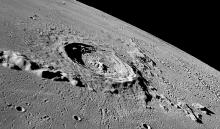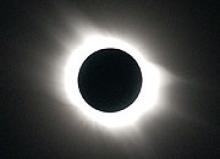
We all may prefer the goldilocks zone – not too hot, not too cold. But most of the universe is bitterly cold. We can learn a lot about it if we’re willing to brave a temperature drop.
A chilly Arctic island is the closest thing to Mars-on-Earth for scientists who want to go to the Red Planet. Meanwhile, the ice sheet at the South Pole is ideal for catching neutrinos – ghostly particles that may reveal secrets about the nature of the universe.
Comet ISON is comet ice-off after its passage close to the Sun, but it’s still giving us the word on solar system’s earliest years.
Also, scientists discover the coldest spot on Earth. A champion chill, but positively balmy compared to absolute zero. Why reaching a temperature of absolute zero is impossible, although we’ve gotten very, very close.
Guests:
Francis Halzen – Physicist, University of Wisconsin-Madison, principal investigator of The IceCube Neutrino Observatory
Ted Scambos – Glaciologist, lead scientist, National Snow and Ice Data Center, University of Colorado
Pascal Lee – Planetary scientist, SETI Institute, director, NASA Haughton-Mars Project, and co-founder of the Mars Institute. His new book is Mission: Mars
Andrew Fraknoi – Chair, astronomy department, Foothill College
Vladan Vuletić – Physicist, Massachusetts Institute of Technology
Descripción en español
This episode was tagged with: physics planetary science astronomy climate universe Mars
 The Crater Good
The Crater Good 100% Invisible
100% Invisible Cosmic Conundra
Cosmic Conundra Martian Madness
Martian Madness